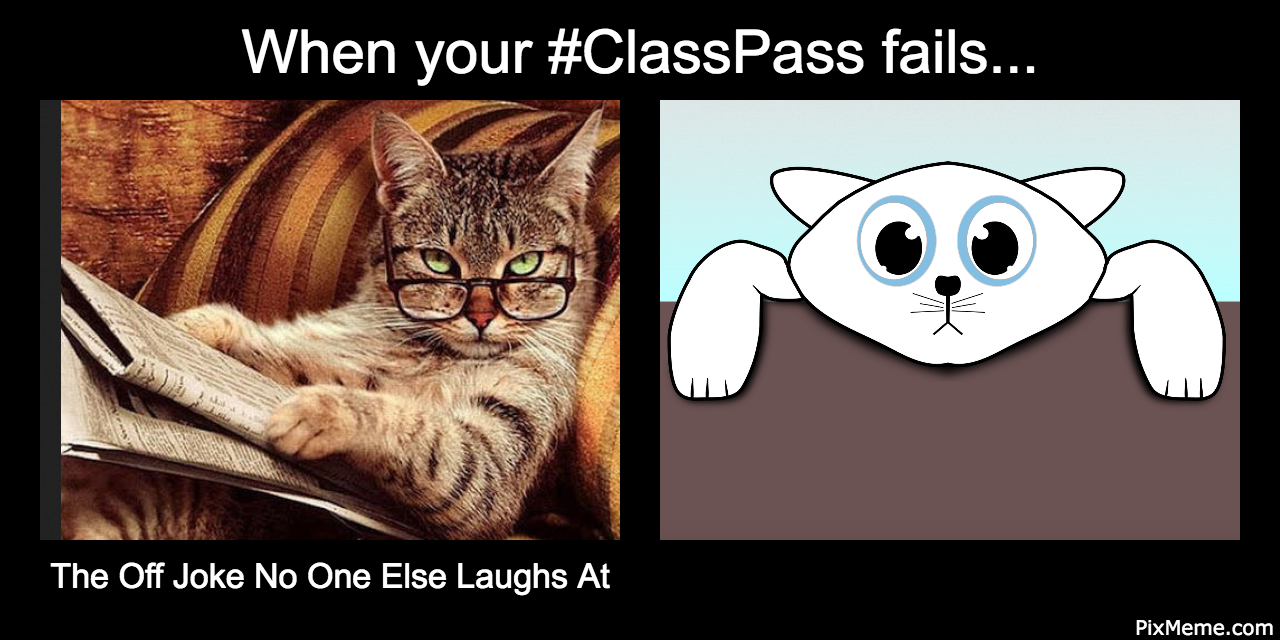There’s an ad I keep getting sent that’s for a gym membership called Class Pass and it makes me laugh every time because of the double entendre: the more common and longstanding definition of Class Pass is to intentionally appear to be an economic class that you are not, often used to refer to appearing to “move up” in class in order to get or achieve something socially transformative.
Class pass: it’s not just a gym ad.*
So, Julia Roberts in Pretty Woman is on a Class Pass when she wears the big hat and the shoulder-padded suit.
Cinderella is on a Class Pass when the glass slippers give her access to the ball.
Eliza Doolittle is trying to Class Pass when she recites The Rain In Spain…
Seen in a media lens, a class pass “up” is a temporary illusion, something made of clothing and magic dust. The ride “up” is impermanent and the moment that the spell is broken is often part of a moral tale: your class doesn’t matter, you’re beautiful as you are, etc. Only then, when the person desiring to move classes is no longer trying to, can a class shift be bequeathed upon them. Even Holly Golightly gets told and then marries the regular writer dude, after all.
Fuck that storyline, by the way.
One could also ride the class train “down” to have less resources, often called downward mobility. In the truly great class path matrix made by Betsy Leondar-Wright, she separates out voluntary and involuntary downward mobility.
So, Akeem (Eddie Murphy) in Coming to America is on a Class Pass to be “regular” — a/k/a a working class american. Those counterculture folks you know who eschew their resource access to live in 6-person collectives and forge alternate economics are also on a Class Pass.
Mistakes due to or jokes at the expense of failed Class Passing are abundant, and if you’ve ever tried to class pass you may have a story of your own (for me: how many frickin forks do I need!?):
The Off Joke No One Else Laughs At

There’s the obvious failure – HE’s Never Worn Seersucker Before, Has He!?

The one moment it all fell apart even though it was going so good narrative

… you get the point: class is based on shared assumptions, expectations, and reality. These things can get thin very quickly since, of course, class is totally a construct.
And finally, there’s the offensive sibling of class passing: class tourism, otherwise known as slumming. Here, the aim is not an achievement but an experience — seeing The Other Half, and then returning. This, again, is going “down” in economic access, but it’s with the eyes of a visitor who does not mean to stay. If this is you, I’d ask you to ask these questions: Am I being respectful at all times? Do I understand that the people around me live this daily reality? What can I do to leave the place
I’m class touristing in better than I found it? (hint: paying local folks for stuff is a start)
Whatever class journey you’re on, a few things are clear:
- Most people do not have a unified experience of class across their lives. why? It’s a combination of situation, access, and +/- privilege — and it’s on a scale related to the people around you.
- Research shows that, comparing young life and adult life, at most, most people only move up or down one class bracket. From lower-middle to middle. From upper-middle to upper, etc. Rarely is rags-to-riches reality, though of course it makes exciting movies.
- Many of us will use a Class Pass in our lives: new jobs, schools, clients, customers – interacting with people whom you believe creating a certain playing field with matters.
*Also, Class Pass could definitely be part of a game that involves pretending to be a high-school student or principal… but that’s another story altogether